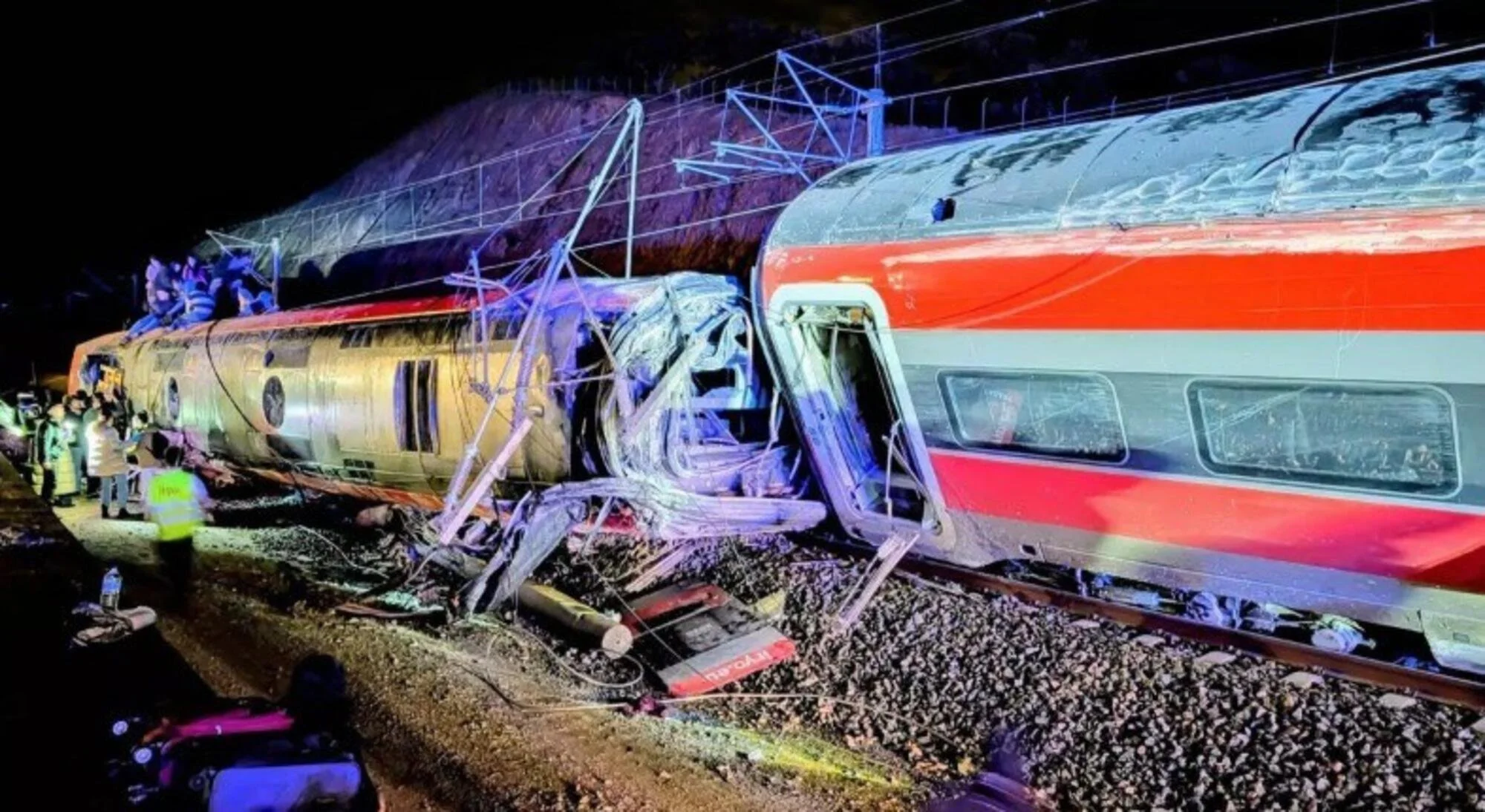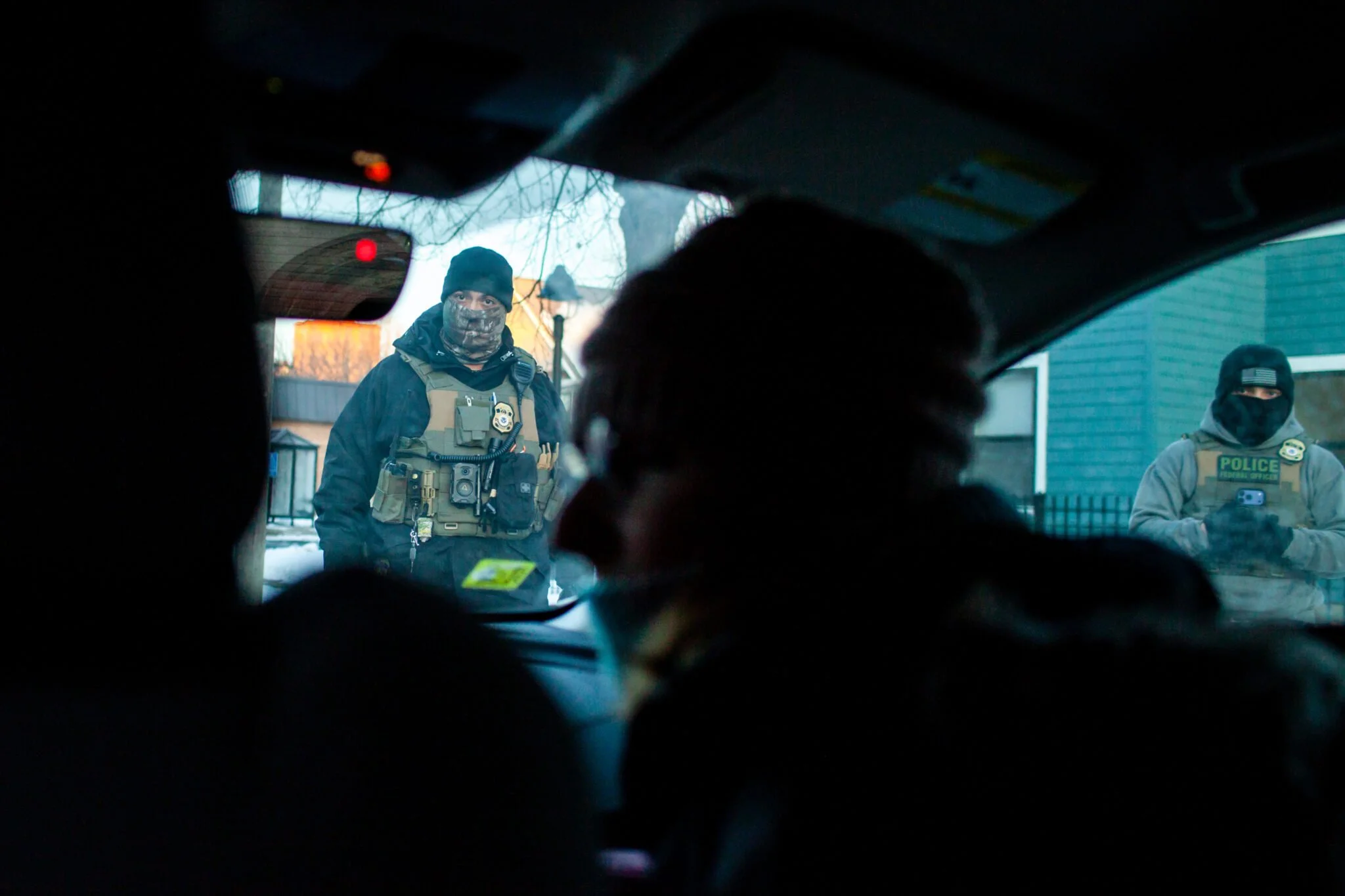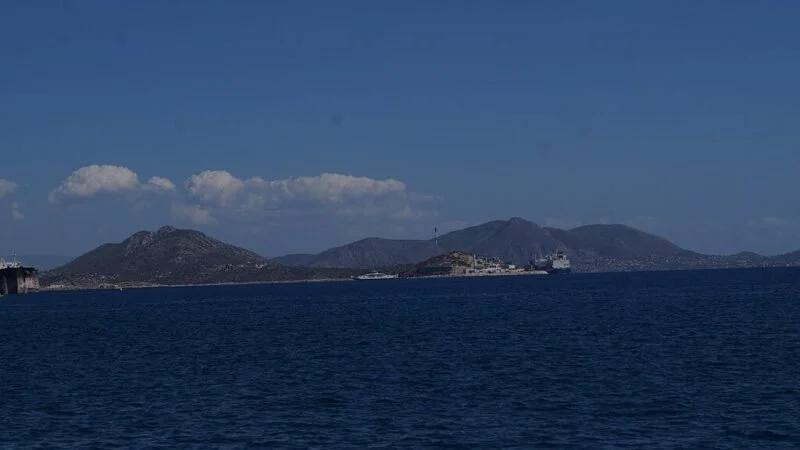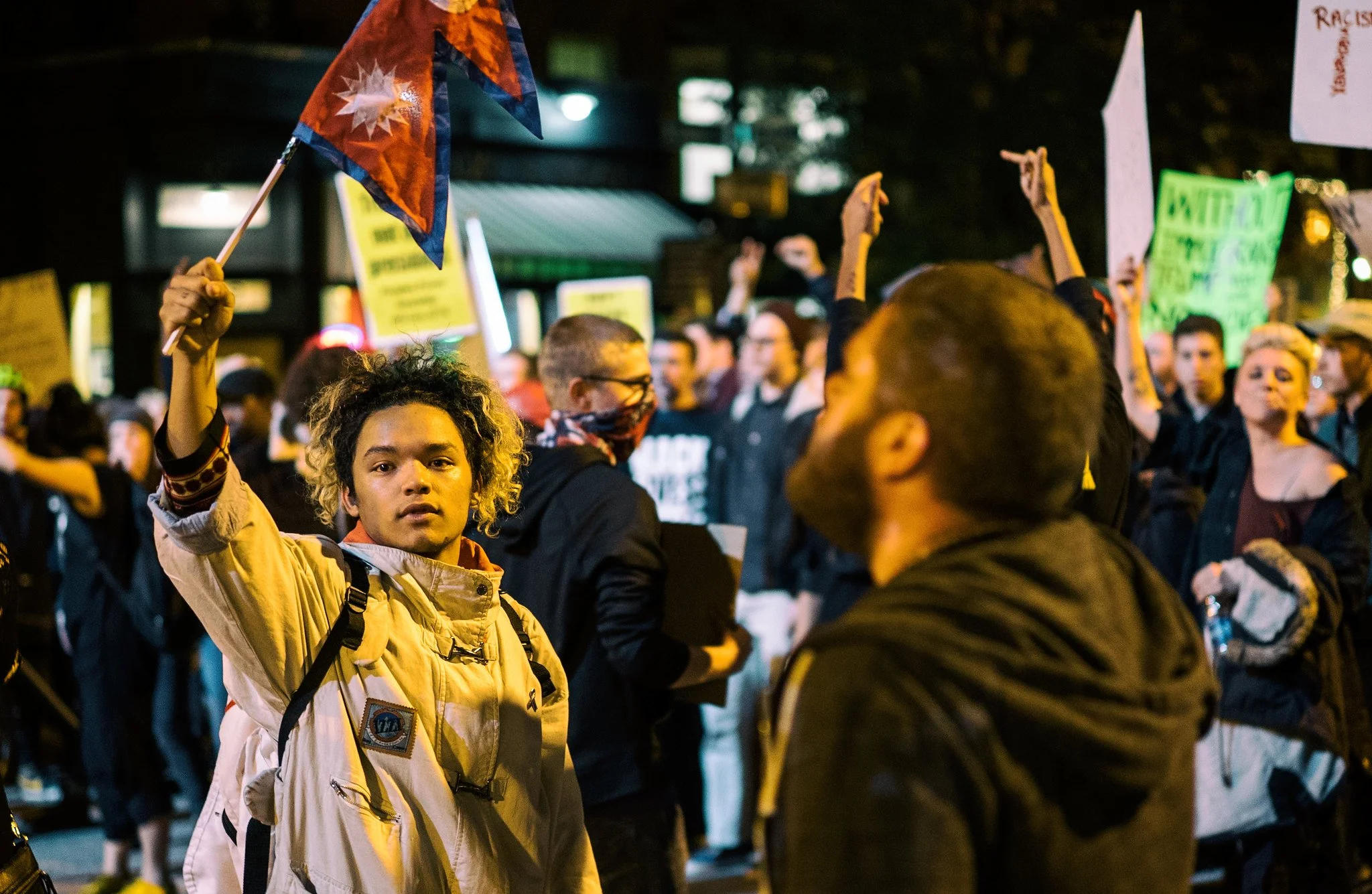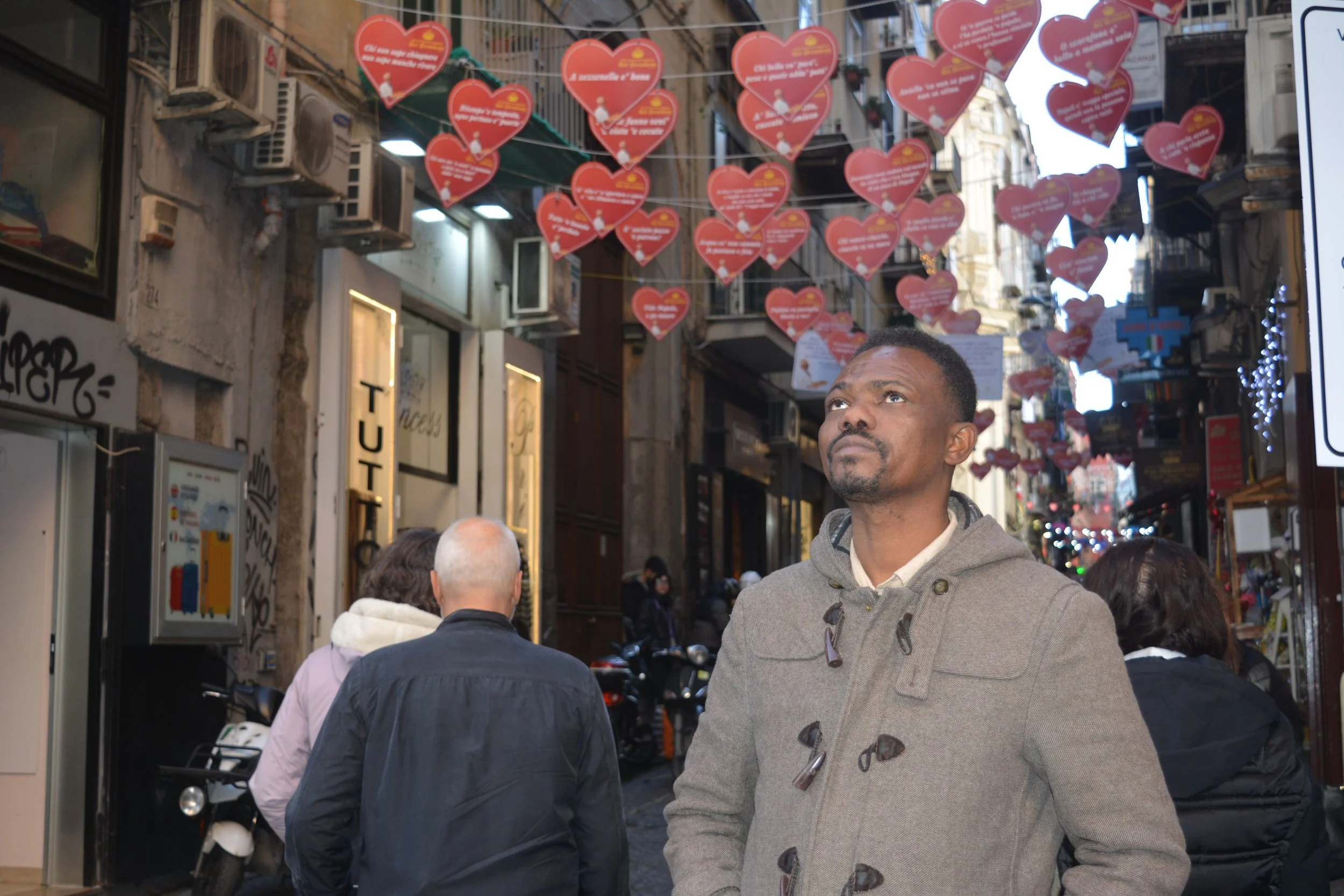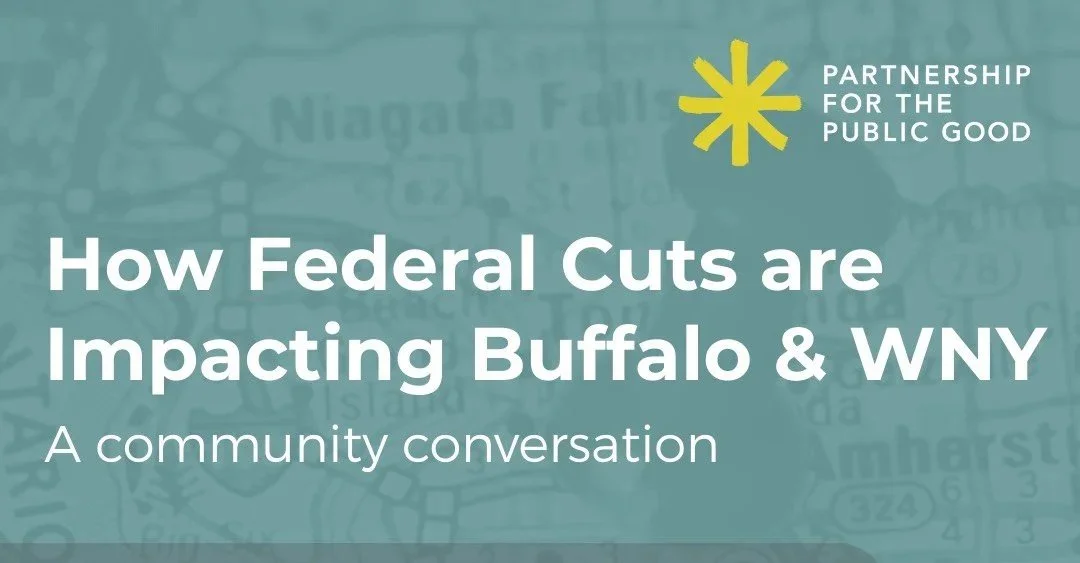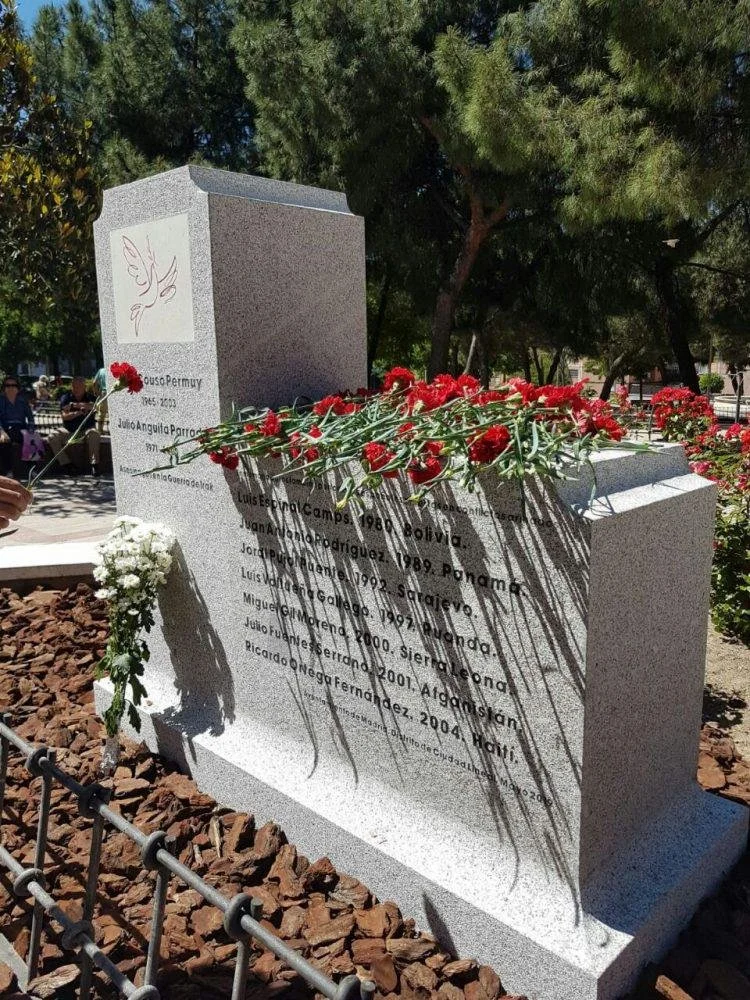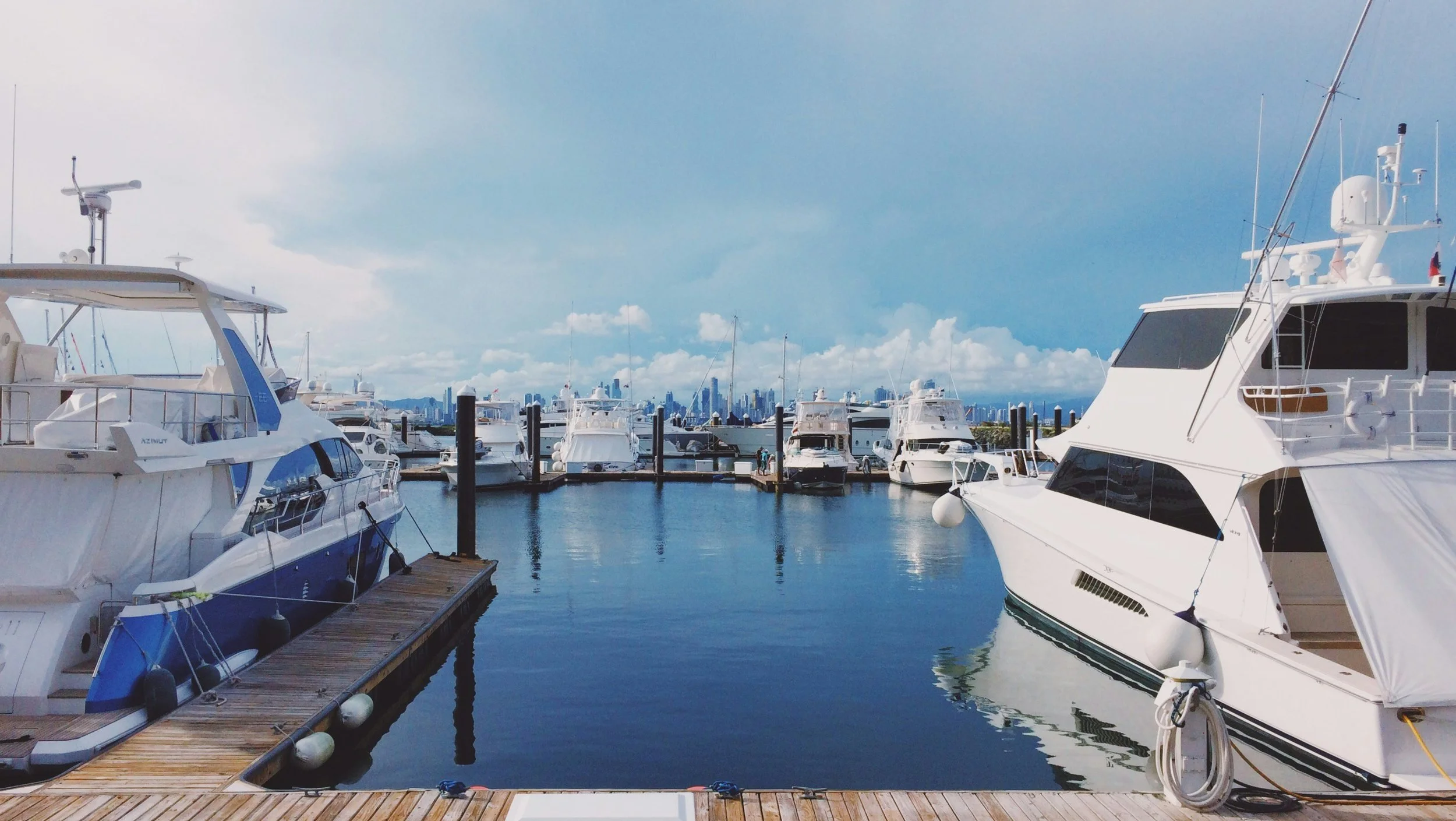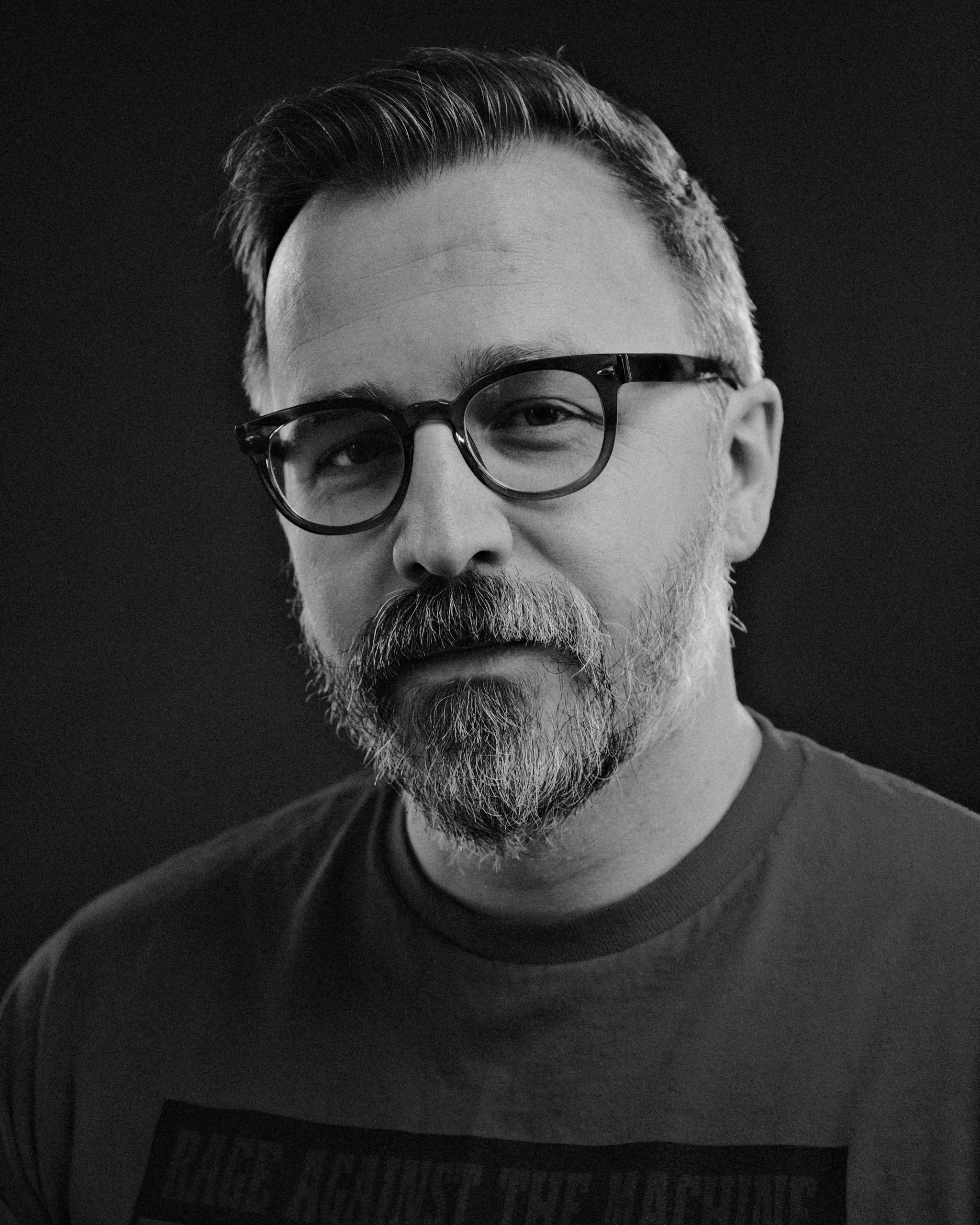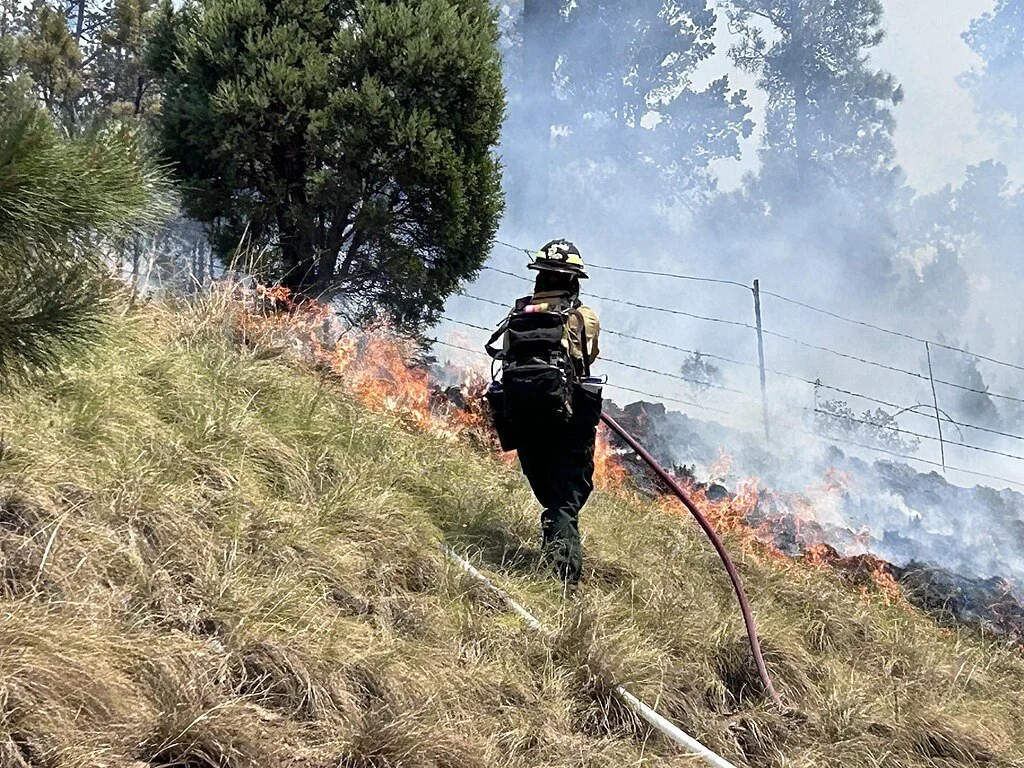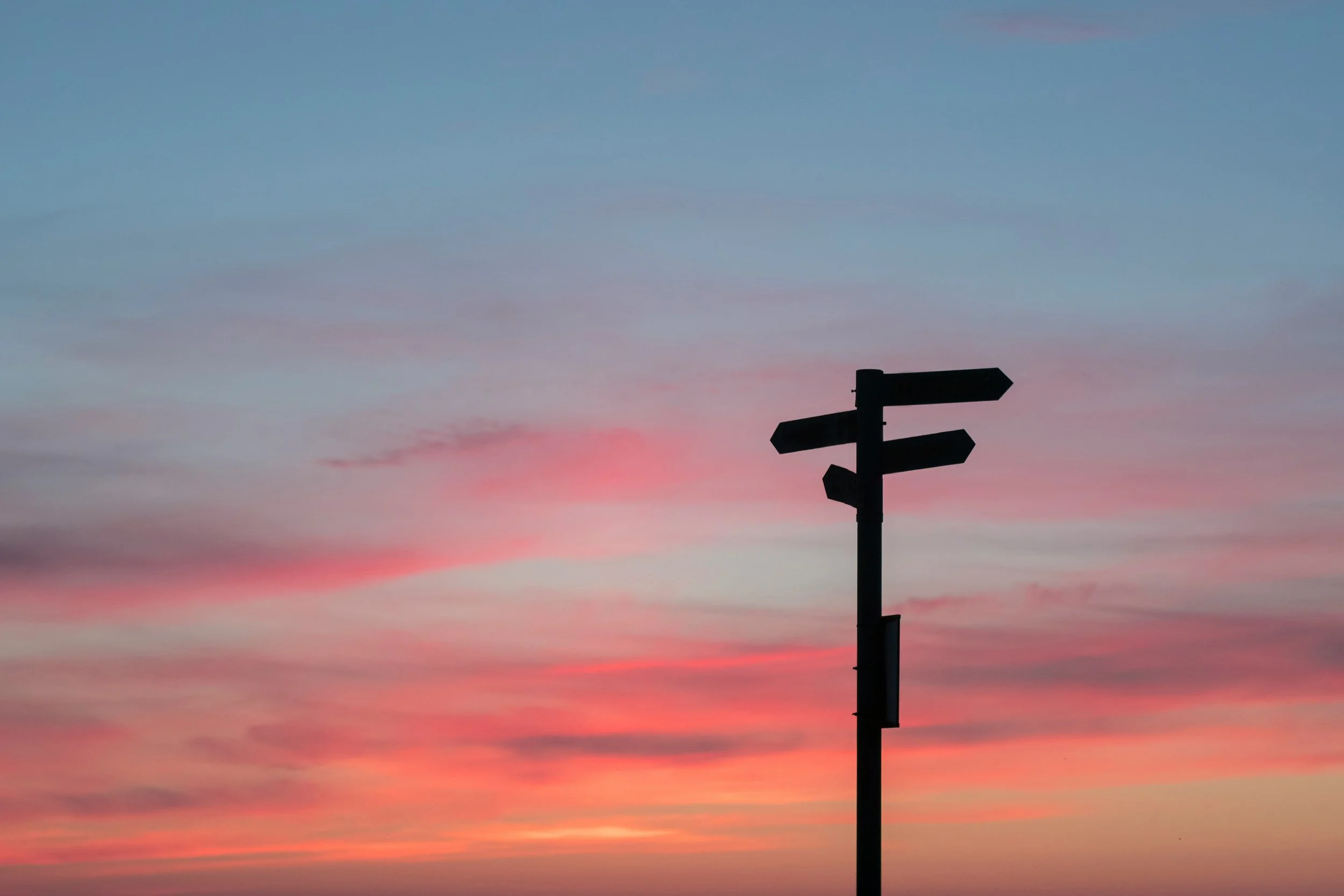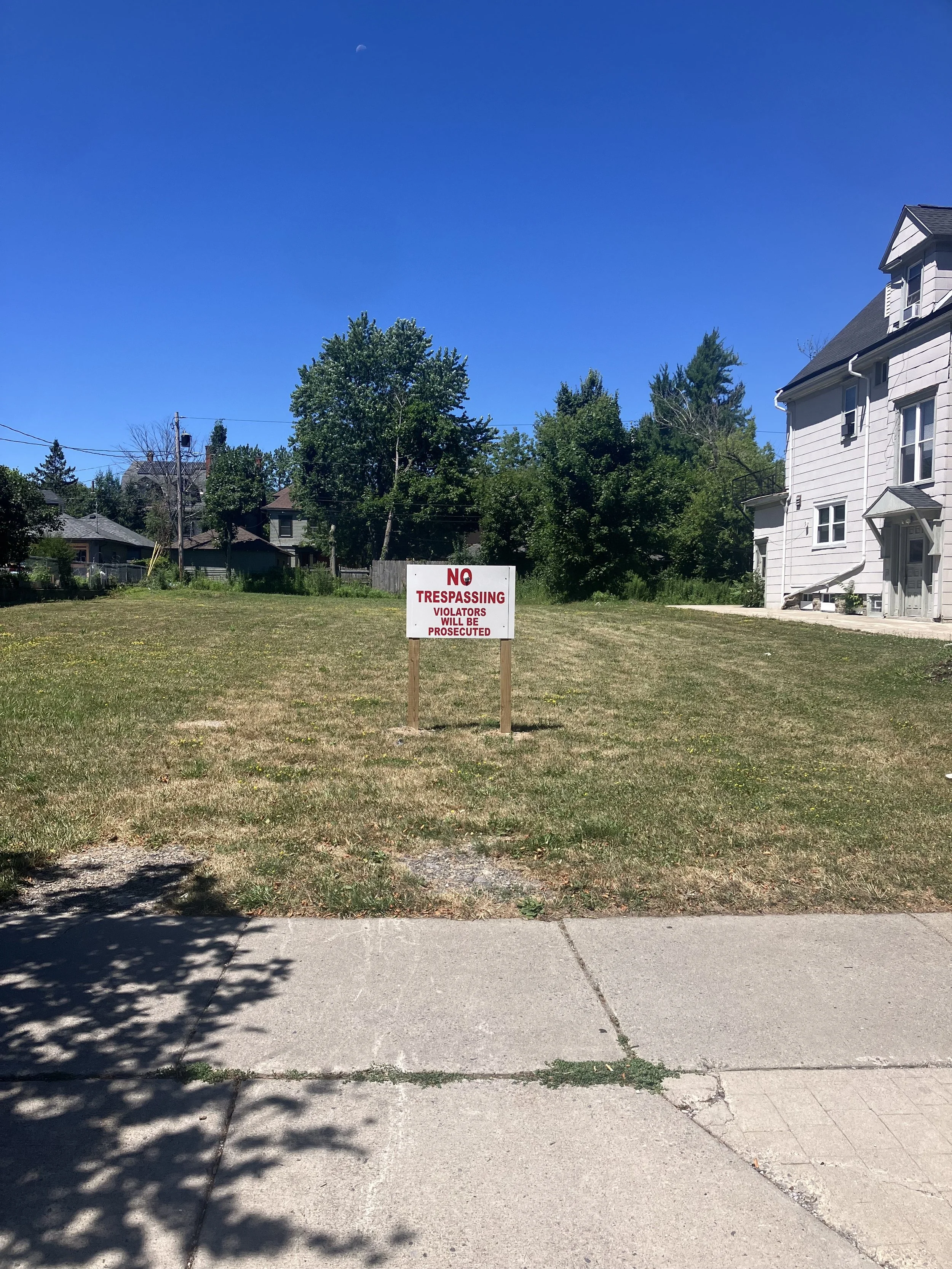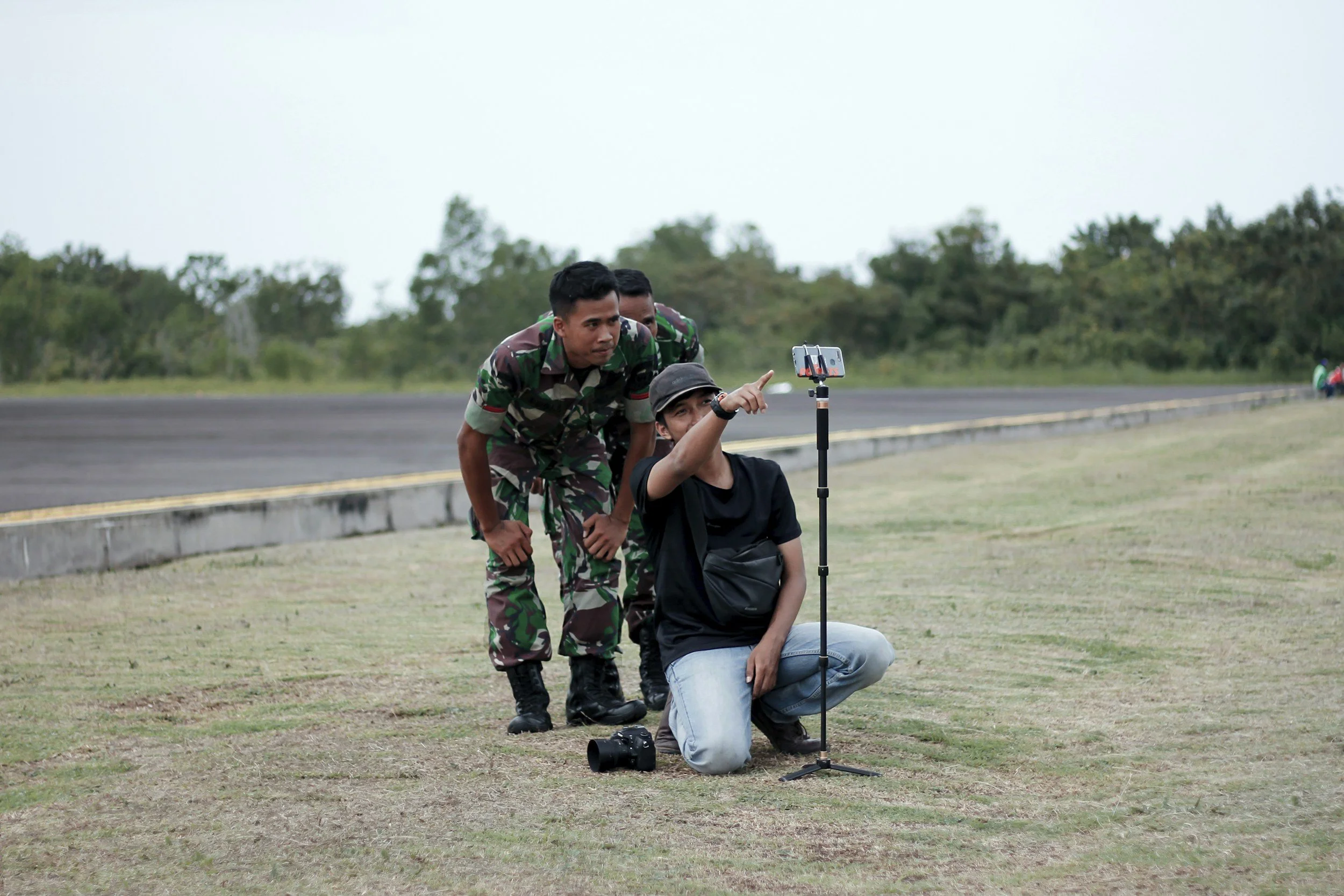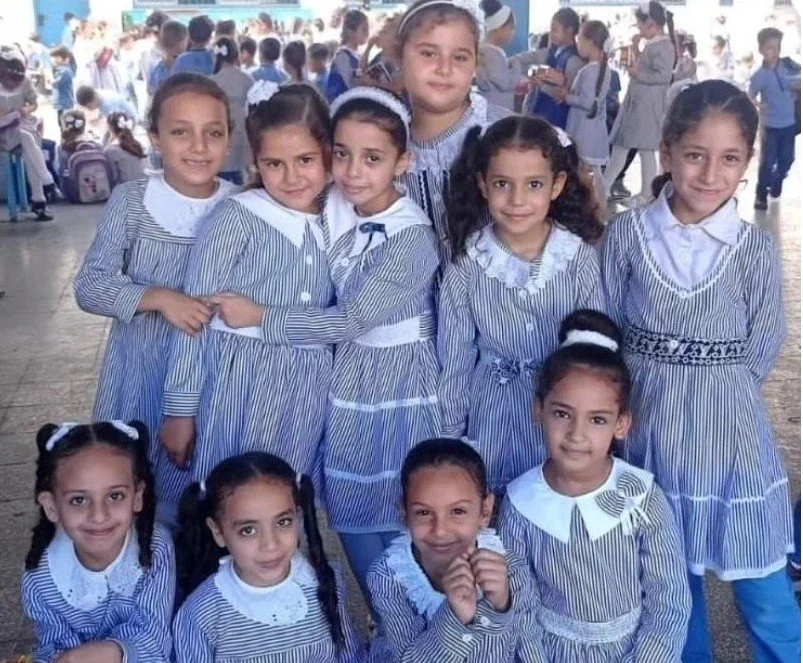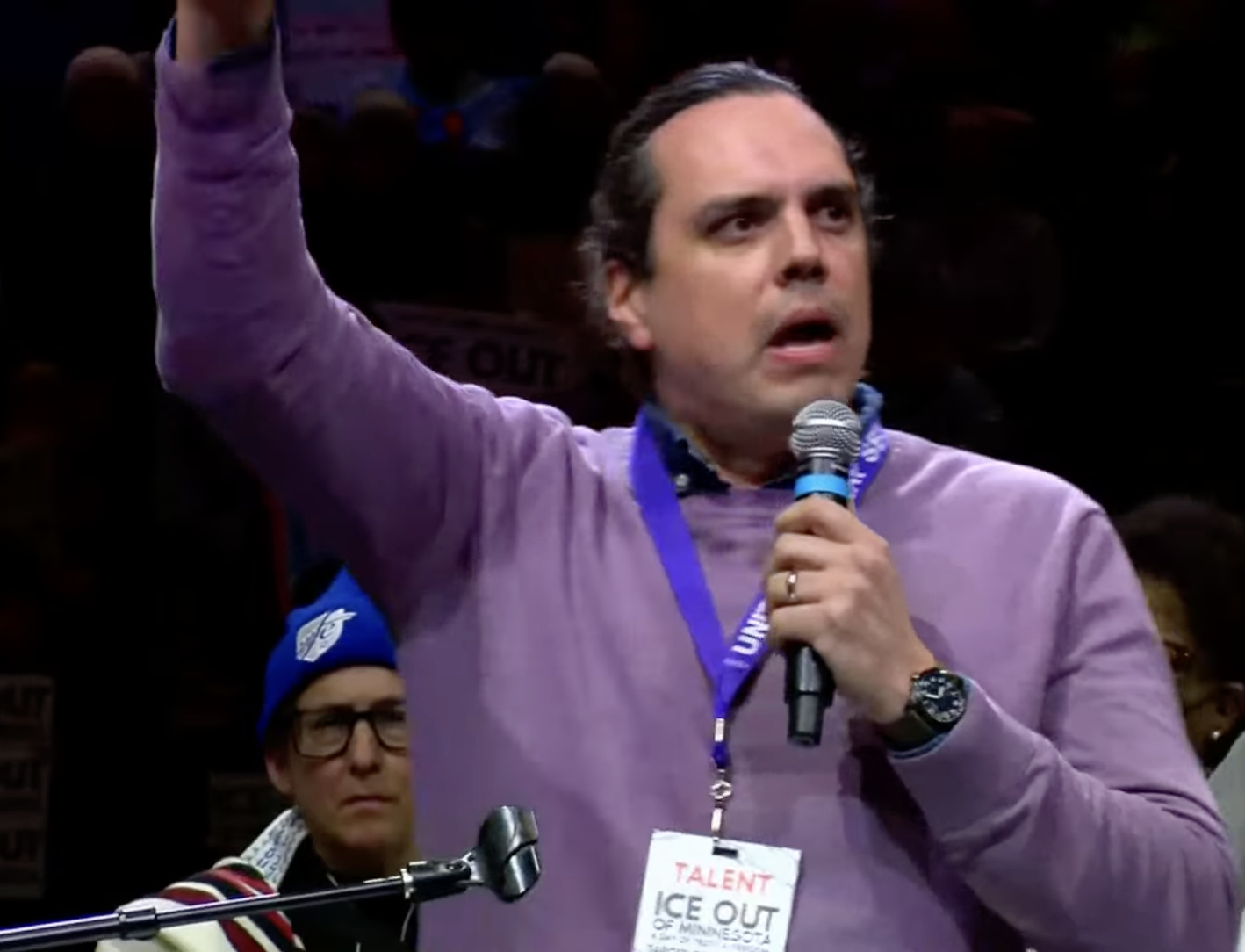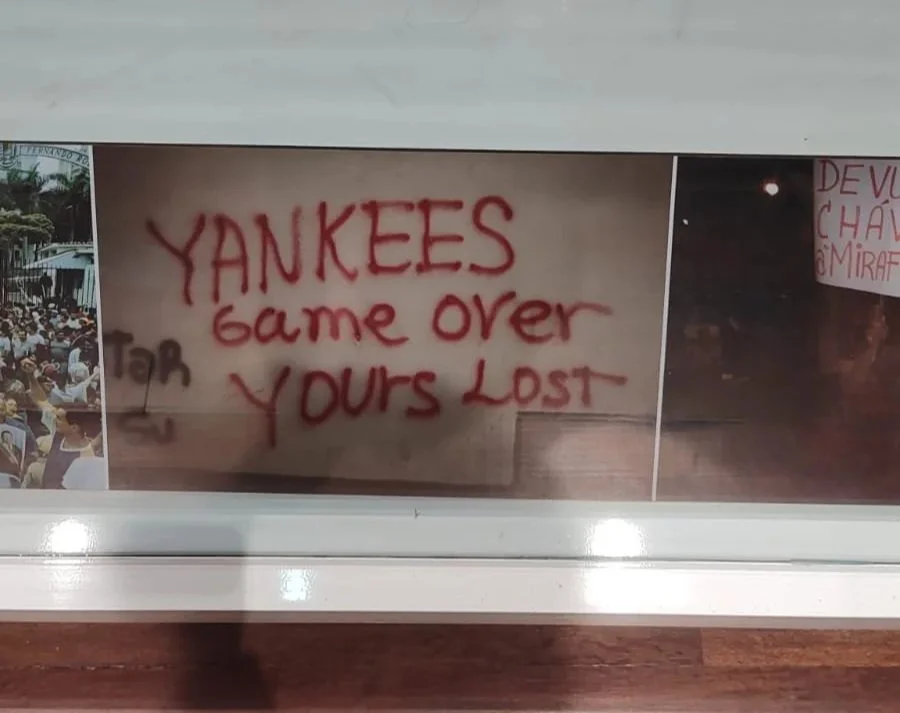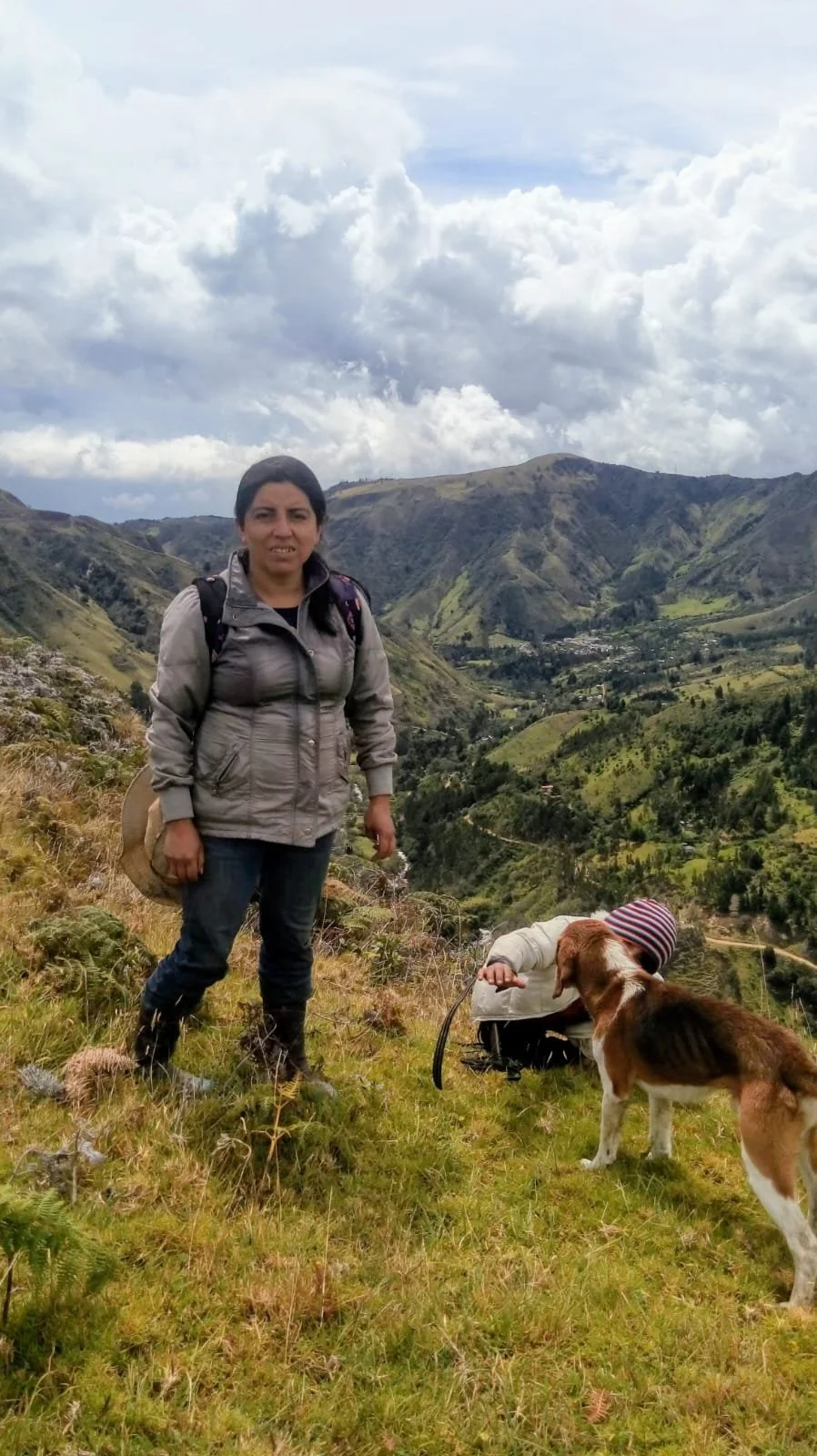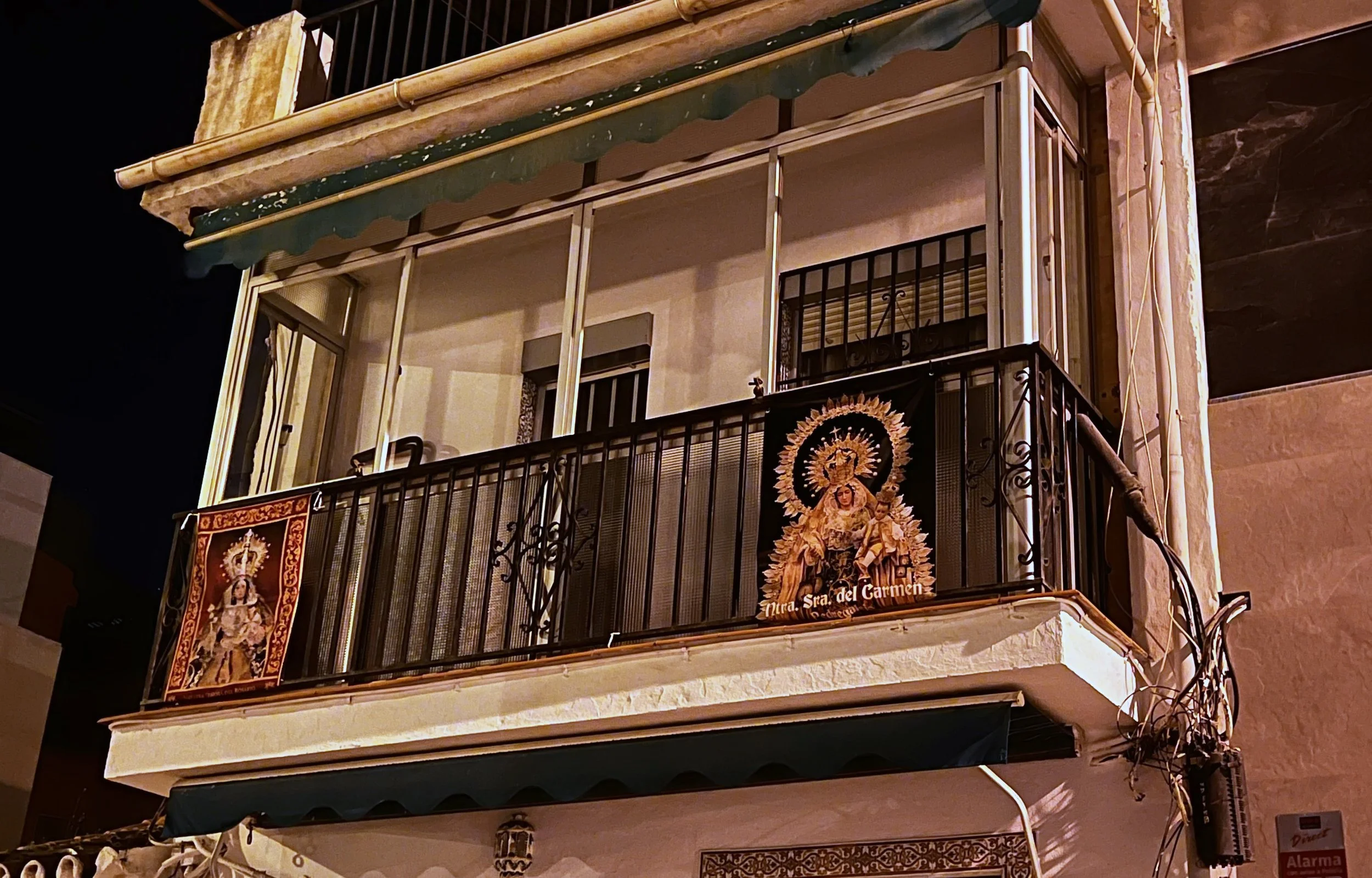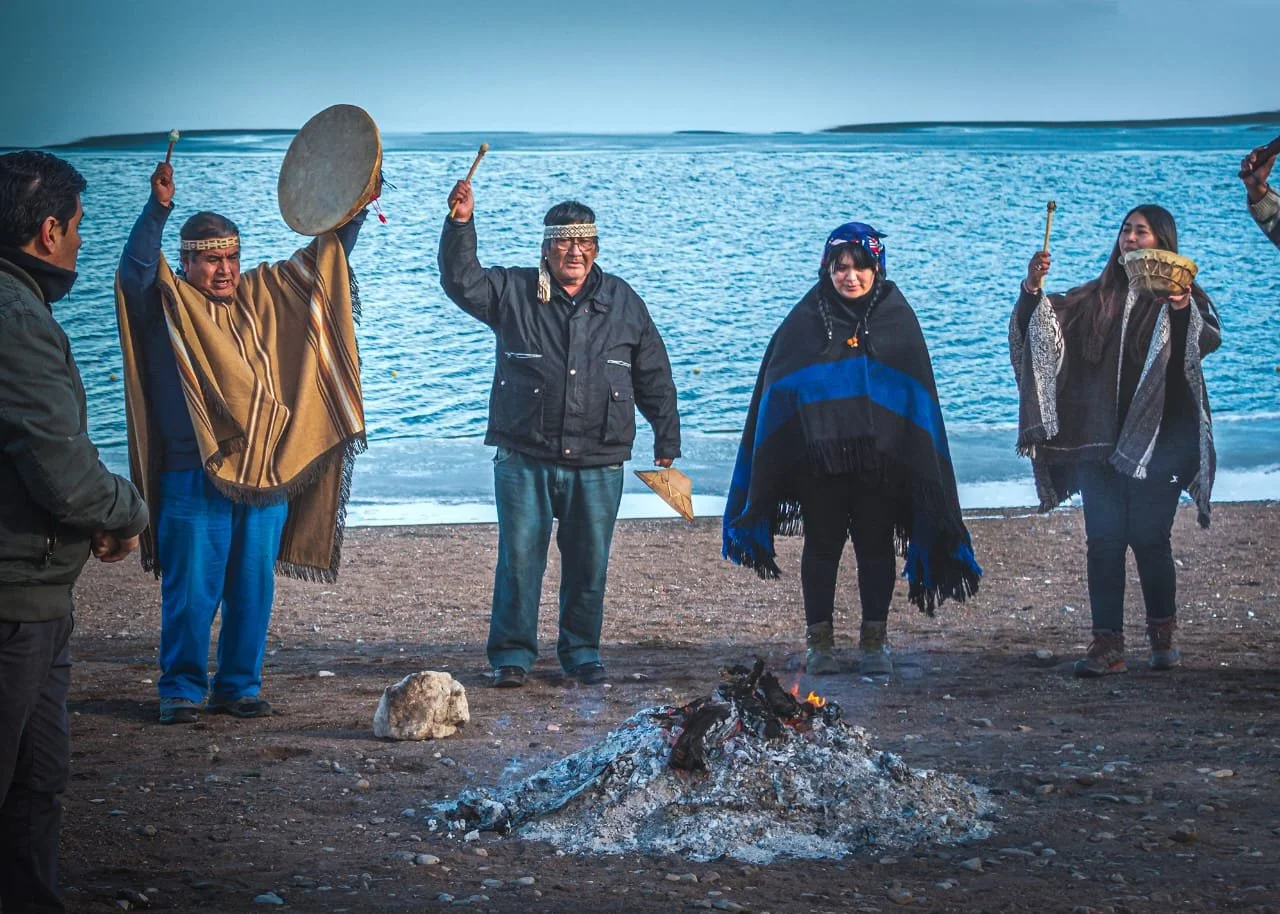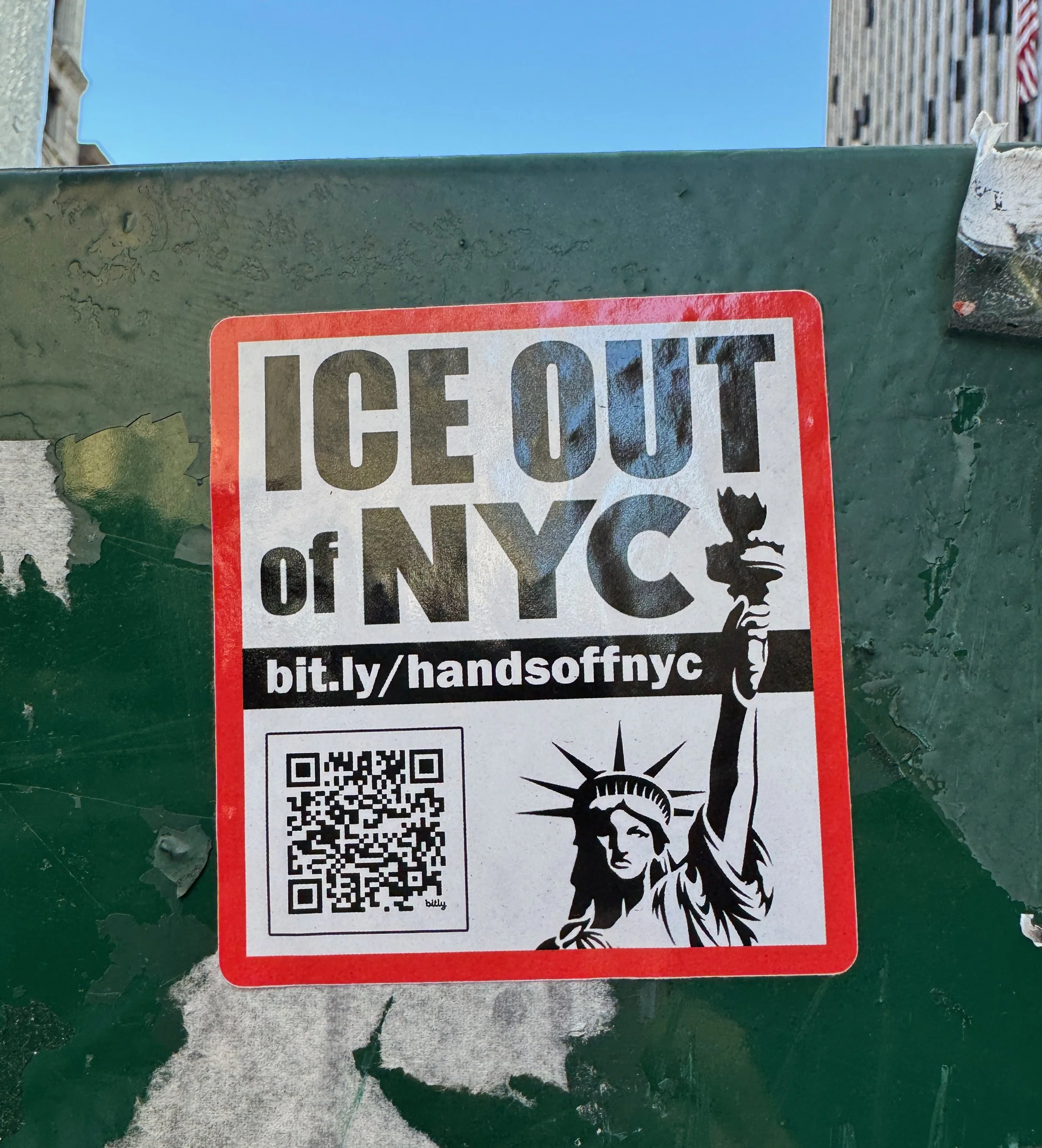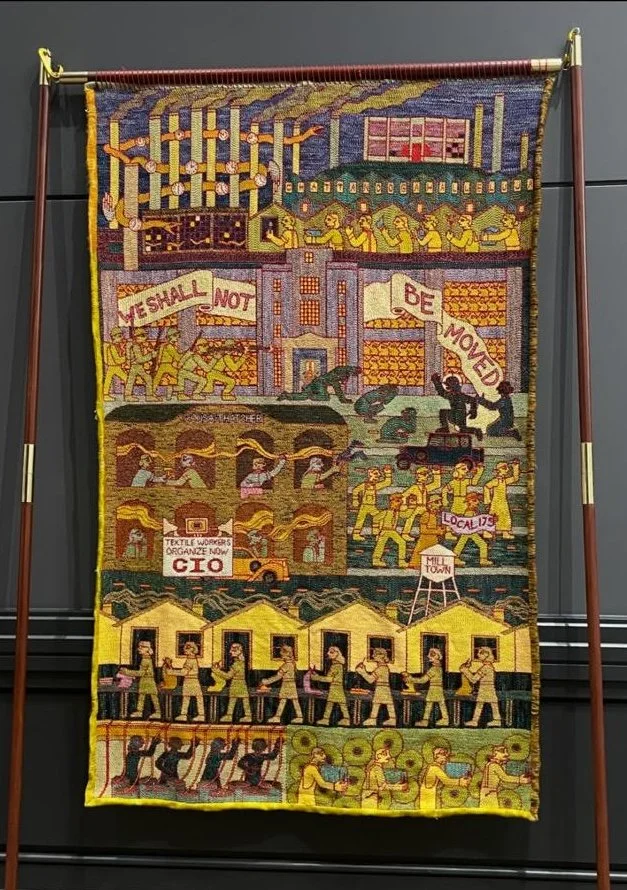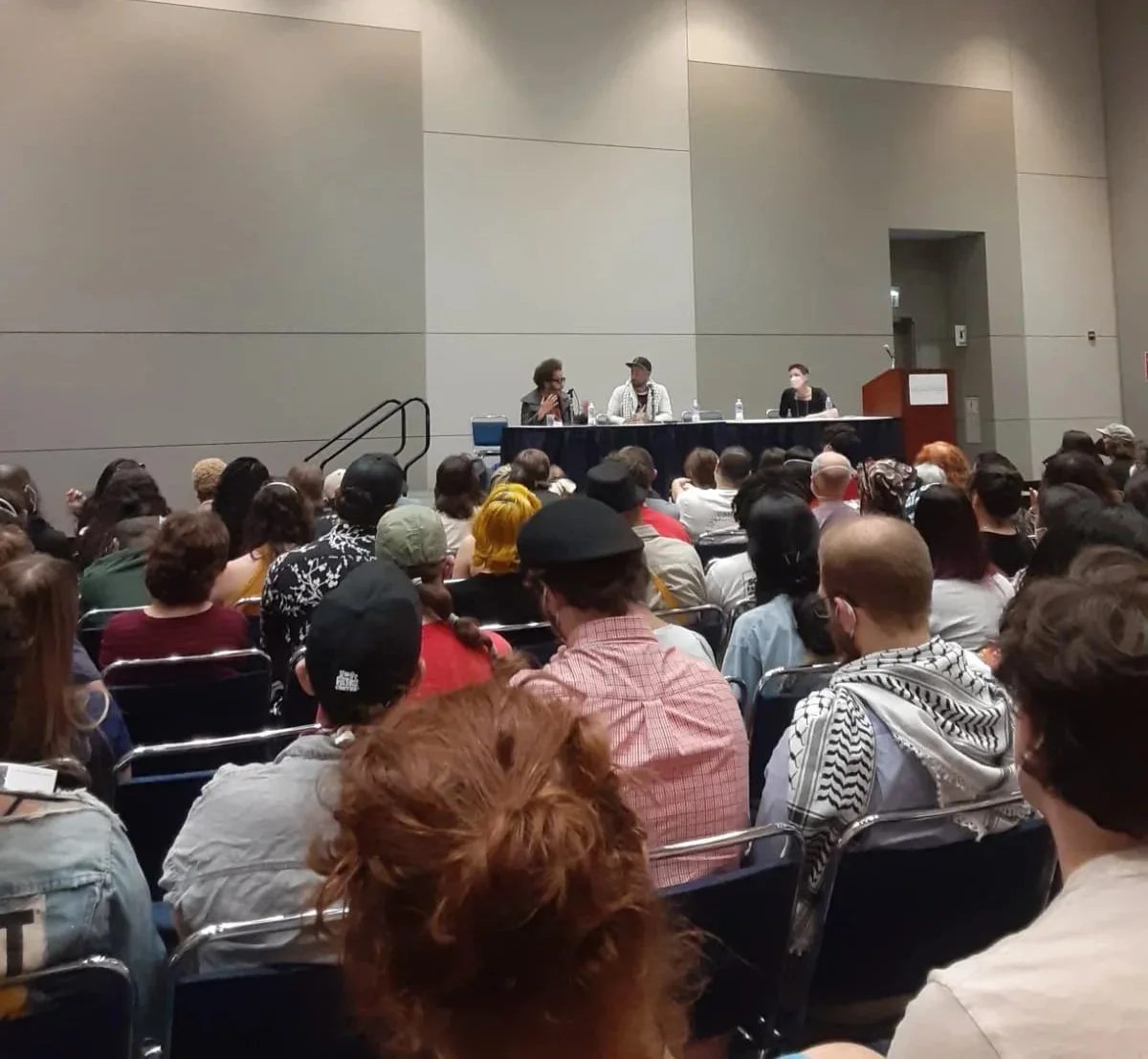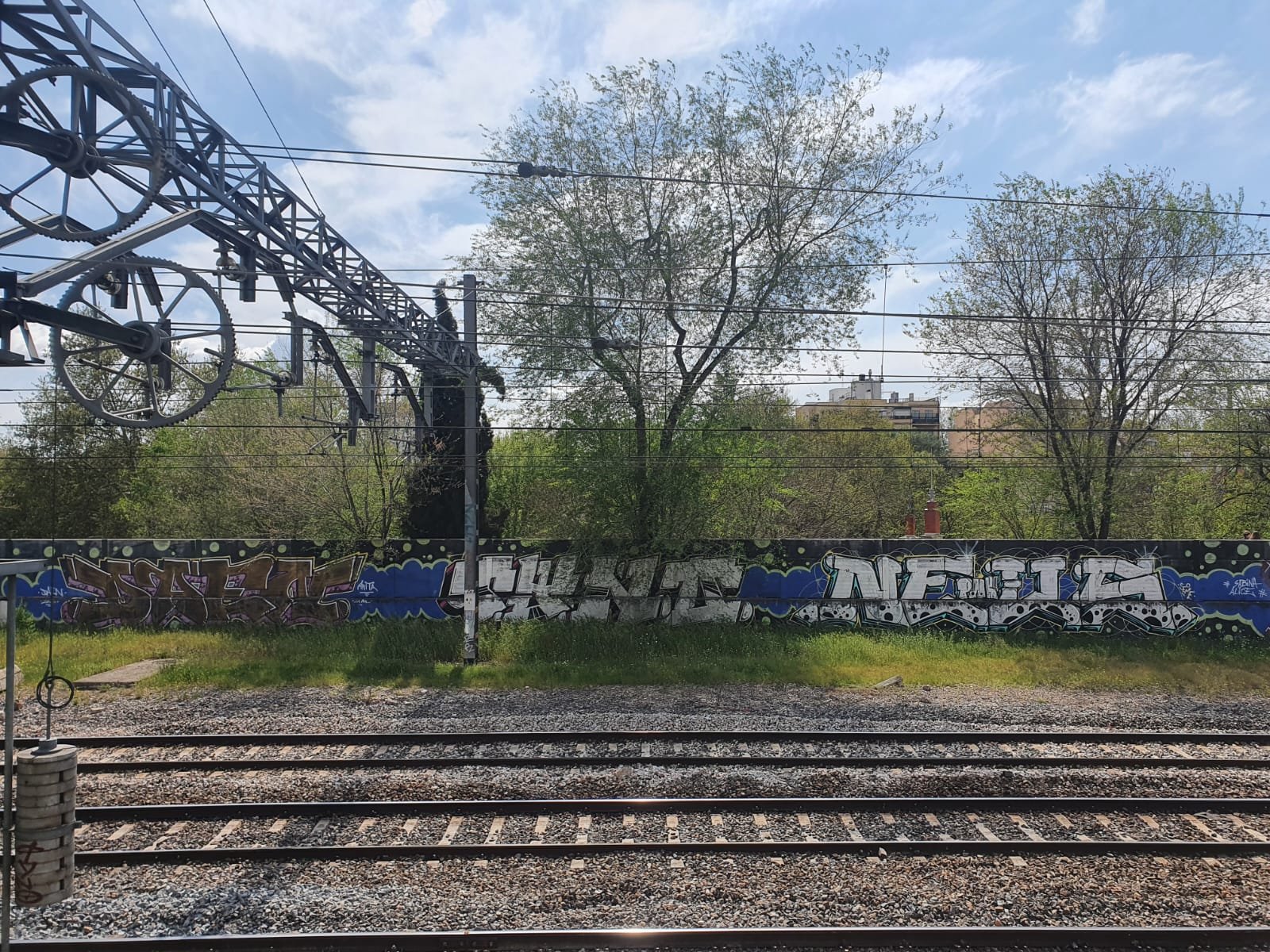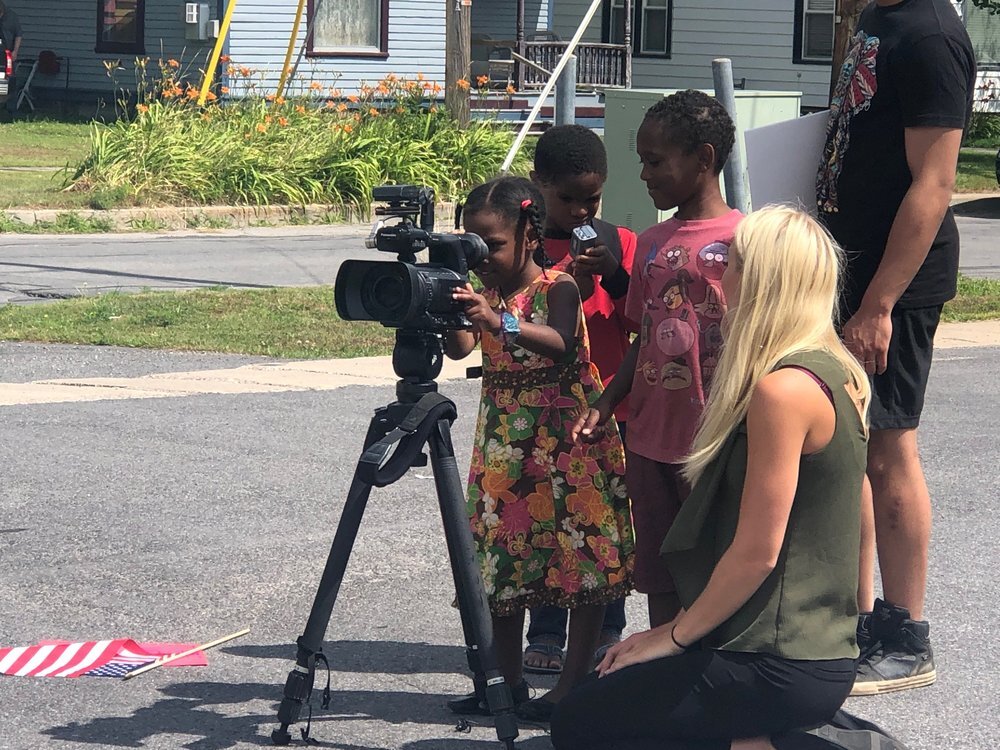
Stories
News
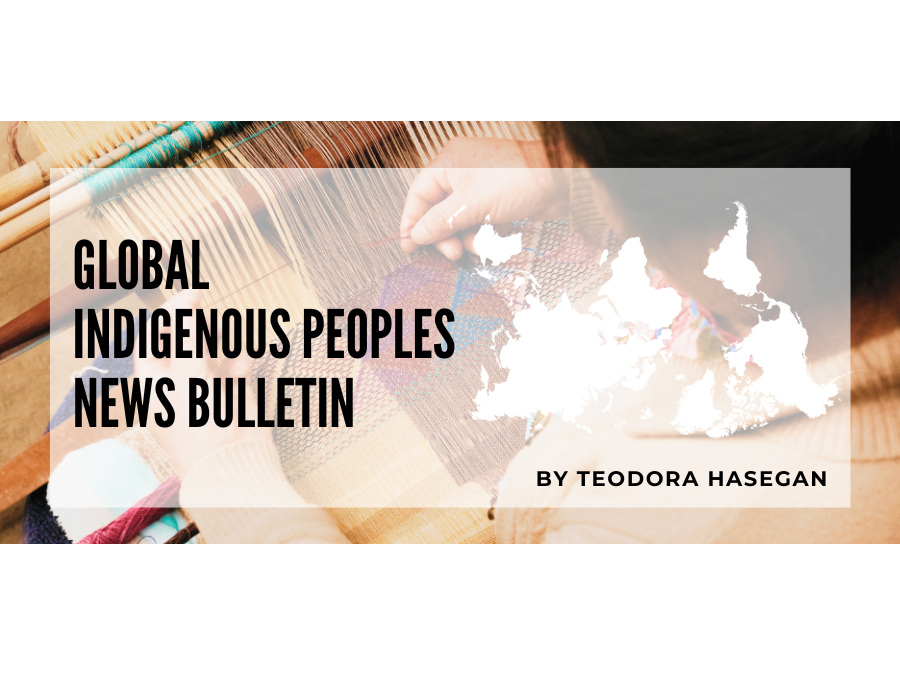
Analysis
Voices
Podcast
Announcements
Events

All Stories
NPR’s Celebration of German Public Memory: A Study in Colonial Amnesia
By acknowledging only the Jewish victims of the Holocaust, Martin and Smith’s conversation actually illustrates the failure of Germany to be “honest about its past harms.” For example, there is an urgent need to overcome the collective denial surrounding Germany’s history of colonization and genocide.
Criminalizing Solidarity: The Eternal Fascist Playbook
Here’s the thing: Fascists hate solidarity. At a minimum, they want you to laugh at people who embrace the solidarity impulse and who act accordingly. At a maximum, they want you to support the criminalization and violent suppression of this impulse. What this means is that acting out of solidarity is a fundamental part of the larger project of fighting fascism - a project whose global urgency is growing by the day.
Agroforestry: A New Restoration Horizon for Brazil's Most Degraded Forest Biome
In biomes hurt by urban sprawl and agricultural advancement, understanding the potential of solutions that integrate human and agricultural systems will help bridge the well-being of the population and the environment. That is why agroforestry has attracted the attention of farmers, researchers and policy makers in the last decade as a new horizon for forest conservation in tropical regions like the Atlantic biome.
Migration in Denmark: Context and Current Debates
In her first article for our Weaving the Streets series, Janeil Speid reports on the complicated history and current reality of immigration in Denmark, where the country’s liberal image sits uneasily with a reality of hostility toward some of the country’s newest immigrants.
The Struggle for Quality Employment in the North Country: Beyond Prisons and the Military
In this article, I wanted to go beyond simply presenting statistics to illustrate the extent of unemployment or economic insecurity in the North Country. I thought it was important to discuss how dependence on the military-industrial complex and the prison-industrial complex make the region's economy vulnerable, negatively impacting workers and their families.
The Myth of Responsible Mining Debunked: Venezuela’s Orinoco Mining Arc
n 2016, Venezuela’s government designated the Orinoco Mining Arc for extractive activities. What is allegedly envisioned as a development zone, meant to increase the mining revenue of the nation, is in fact an epicenter for human rights violations, illicit mineral extraction and ecocide. However, the authoritarian Maduro regime continuously denies and distances itself from these crimes. As this analysis shows, in officialist Venezuelan media outlets, many things are left unsaid regarding this highly contested territory.
Why Do People Do Graffiti?
According to Art Journal, “there are many possible purposes for graffiti: it can be to tell a story, highlight a certain moment in time where things went wrong or right, describe people, politics, culture, art, places and society together; express yourself anonymously, or just be another art form.” However, that is only a partial answer. The actual reason why people do graffiti is much more complex and involves learning a bit of history —making it impossible to summarize in one sentence.
Privatizing Sacred Spaces: How a New Guatemalan Law Threatens the Mayan Nation
In early May, the Congress of the Republic of Guatemala introduced the first reading of Initiative 5923 or, the “Law for the Rescue of Pre-Hispanic Heritage” (Ley para el Rescate del Patrimonio Prehispánico). Despite the bill’s ambiguously progressive-sounding title, the reading was met with disappointment, outrage, and alarm from the many Indigenous Mayan peoples of Guatemala and their allies from around the world.
Ecuadorian Paro Nacional: The Power of Grassroots Mobilization
This was certainly not the first national strike in Ecuador, nor was it the first time that Ecuadorians have protested against the neoliberal economic policies that have historically disenfranchised the country’s indigenous and impoverished communities. The willingness to shut down Ecuadorian society as an act of protest, despite the subsequent harsh economic repercussions of such mass mobilization, illuminates the fervent desperation of the indigenous communities and other social groups within Ecuador as well as people’s desire for drastic political, social, and economic change.
Is LaMDA Sentient? We Don't Know - and That's What Scares Me
When it comes to Artificial Intelligence (AI), I am a layperson; I don’t have anything remotely resembling AI development experience. But if the interview posted by Google engineer Blake Lemoine is an accurate and truthful account of their conversation with LaMDA, I don’t know if I could make a determination on whether LaMDA is sentient or not.
And that’s absolutely horrifying to me.
Bratwurst, Beer, But Not Queer: Homophobia at Oktoberfest
The post has caused a debate on German social media about discrimination against the LGBTQ+ community, especially as it was published in June, internationally known as LGBTQ+ Pride Month. One of Munich’s city council officials, Anja Berger, remarked disapprovingly that this attitude was “hostile towards the LGBT community, and therefore unacceptable.”
News Coverage of the 2021 Colombian National Strike: An Agenda Setting Operation
As Colombia prepares for elections that have the potential to shift the country’s direction significantly, a look back at the country’s 2021 general strike provides a useful window into the forces that have led the country to this point. In particular, a critical analysis of establishment media coverage of the strike reveals the continuing role of dominant institutions in seeking to extend the status quo and undermine the people’s desire for peace and justice after decades of structural violence, dislocation, and corruption.
PARO NACIONAL 2021: Colombians’ Prolonged Outrage Takes Over the Streets
As the presidential elections and a glimpse of change approach, Colombians keep rising to disclose the numerous human rights violations and other abusive realities that the current administration has caused. In order to make sense of what is happening on the ground at the moment, however, we need to look back at the national strike that shook the country in 2021.
Exploring the Underground Graffiti Culture in Madrid
I am fascinated by how graffiti artists like SODA express themselves by using the public space of a city as their canvas. Graffiti is not only an artform, it is also a lifestyle, a culture. Painting at night, breaking into train stations, exploring underground tunnels, running from police (hopefully not) are part of the everyday life of a graffiti artist. They go to great extents and risk their lives, careers, and freedom to realize their work. I have a lot of respect for those who keep this culture alive.
Intersecting Roots: A Lost Sense of Authority
“Jordanians are angry that the country’s economic dependence on the United States would be further compounded by this new dependence on Israel for water. Given that the Jordanian regime’s survival is closely intertwined with the West, any disagreement with either the United States or Israel could be detrimental to the country’s stability. The water-energy deal would exacerbate this relationship, and locals were quick to reject it.”
The Hidden Crisis: Venezuela’s Imminent Ecocide and the Orinoco Mining Arc
Venezuelan President Nicolas Maduro created the National Strategic Development Zone of the Orinoco Mining Arc in 2016. Commonly known as the Arco Minero, it comprises an area of 111,843.70 km², larger than Cuba, adjacent to the Orinoco river, and is designated for unlawful mineral extraction. The Arco represents 12% of the country’s territory and is a severe environmental problem for the region.
Chueca: A Complex Site of Struggle
Is Chueca also a site of radical resistance? Is the counter-cultural queer struggle of 1970s and ’80s Madrid still alive? The quiet but subtly powerful presence of posters, stickers, and wall art strewn between the trendy shops and narrow streets make one inclined to say yes. The point, then, is that this struggle is one of many.
The Global Tapestry of Alternatives: Stories of Resilience, Existence, and Re-Existence
Across the world there are tens of thousands of attempts to construct alternative realities — either through sustaining things from the past which are still relevant, equitable, and just, or creating new ones.
Economic Insecurity: The Struggles and Resilience of the North Country
In this article, I seek to go beyond simply presenting statistics to illustrate the scope of poverty or economic insecurity in the North Country. I want to show how the limited understanding of poverty, as a threshold defined by institutions, obscures our awareness of people’s struggles to cover their necessities and of the systemic issues causing economic insecurity. Beyond this, I explore the intersection of social class with other identities such as gender and race while also highlighting the importance of grassroots work. Overall, I hope to generate more empathy for our neighbors and encourage support for the people working to improve their communities.

